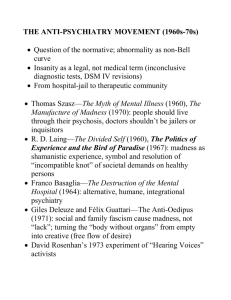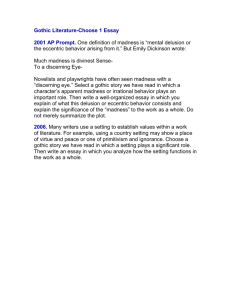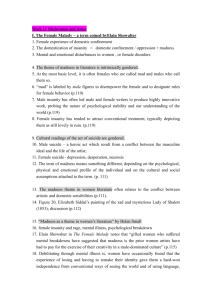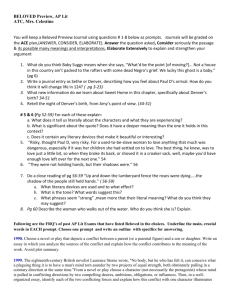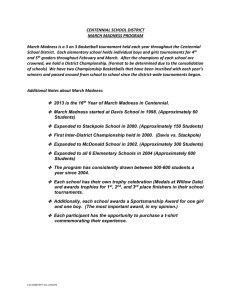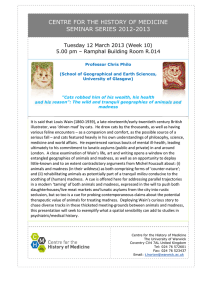by Letizia Gramaglia REPRESENTATIONS OF MADNESS IN INDO-CARIBBEAN LITERATURE
advertisement
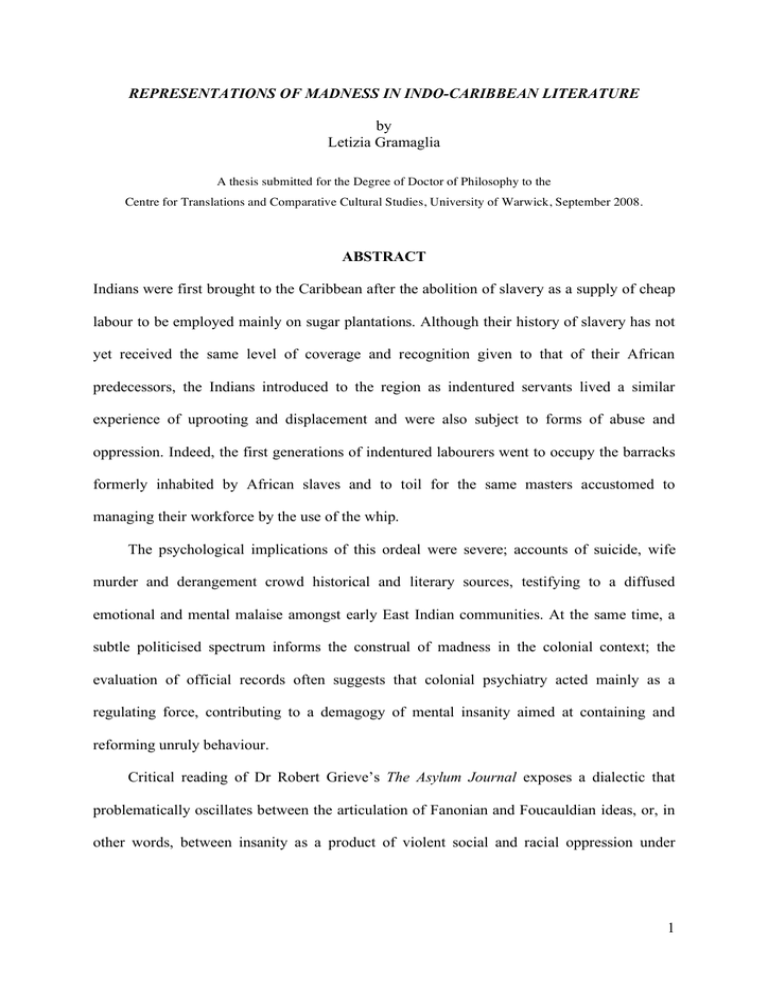
REPRESENTATIONS OF MADNESS IN INDO-CARIBBEAN LITERATURE by Letizia Gramaglia A thesis submitted for the Degree of Doctor of Philosophy to the Centre for Translations and Comparative Cultural Studies, University of Warwick, September 2008. ABSTRACT Indians were first brought to the Caribbean after the abolition of slavery as a supply of cheap labour to be employed mainly on sugar plantations. Although their history of slavery has not yet received the same level of coverage and recognition given to that of their African predecessors, the Indians introduced to the region as indentured servants lived a similar experience of uprooting and displacement and were also subject to forms of abuse and oppression. Indeed, the first generations of indentured labourers went to occupy the barracks formerly inhabited by African slaves and to toil for the same masters accustomed to managing their workforce by the use of the whip. The psychological implications of this ordeal were severe; accounts of suicide, wife murder and derangement crowd historical and literary sources, testifying to a diffused emotional and mental malaise amongst early East Indian communities. At the same time, a subtle politicised spectrum informs the construal of madness in the colonial context; the evaluation of official records often suggests that colonial psychiatry acted mainly as a regulating force, contributing to a demagogy of mental insanity aimed at containing and reforming unruly behaviour. Critical reading of Dr Robert Grieve’s The Asylum Journal exposes a dialectic that problematically oscillates between the articulation of Fanonian and Foucauldian ideas, or, in other words, between insanity as a product of violent social and racial oppression under 1 colonial rule, and the asylum as a place designed to morally control irregular behaviour that was instrumentally labelled as insane. Taking into account this crucial dualism, the present project combines the investigation of new sources in the history of colonial medicine with the reading of colonial and postcolonial literature in order to illustrate the importance of madness as part of indentured servants’ experience, and to map out its cross-generational passage into the collective memory and imaginary of Indo-Caribbean people. While the exegesis of historical records occupies comparatively little space in the body of this study, the factual and ideological premises that it helps to establish are fundamental to my subsequent interrogation of the role of racial, sexual, political and social pressures in the aetiology of madness in Indo-Caribbean literature. Since its early days, this literature has recorded a widespread concern with the mind’s response to environmental stressors and has become a privileged site for the investigation and understanding of psychological conflicts. In some cases, the literary representation of madness mirrors the author’s inner displacement and anxieties, or even contributes to a process of self-therapy; in others, the symbolism of madness is adopted to convey a wider sense of historical or existential fragmentation that extends beyond individual experience. Altogether, the works discussed in this project encompass the polysemy of this theme as developed and portrayed in Indo-Caribbean literature by authors such as Mohammed Sharlow, David Dabydeen, Harold Sonny Ladoo, Shiva Naipaul, Mahadai Das, Shani Mootoo, Jan Shinebourne, Marina Budhos and V.S. Naipaul. The project contributes both to the growing field of Indo-Caribbean literary criticism and to the embryonic area of the history of mental health in the Caribbean. Concentrating on the relation between the social history of medicine and literary imagination, it suggests a new approach to Indo-Caribbean literature based on the close relationship between health and culture. 2
